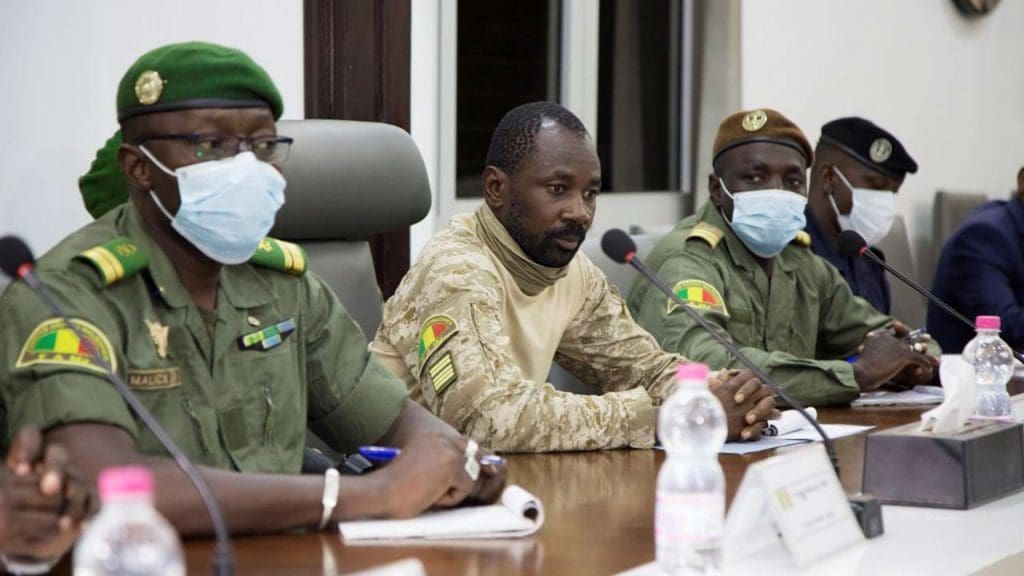The transitional government of Mali, on Tuesday evening, accused the French army of deliberately violating Malian airspace, a week after France’s handover of the Gossi Base (center) to Mali.
Relations between Paris and Bamako are increasingly tense. Nearly three months after announcing the gradual withdrawal of its soldiers, the French army, on April 19, handed over to the FAMa, the Gossi Base in central Mali, near which a mass grave was discovered. In response, the French general staff released videos shot by one of its drones showing men burying bodies. This maneuver outraged the Malian military in power.
“In addition to espionage, the French forces were guilty of subversion by publishing false images fabricated to accuse the FAMa of killing civilians in order to maintain the image of the Malian armed forces engaged in liberating the territory, the protection and safeguarding of the population affected by a long crisis,” said Malian government spokesman Colonel Abdoulaye Maiga in a statement read on national television, calling on the French authorities “to respect the sovereignty” of his country.
For Bamako, French aircraft have been the origin, since the beginning of the year, of “more than 50 deliberate cases of violation” of Malian airspace. Colonel Assimi Goita and his men reproach the French army for its “refusal to comply with air traffic control instructions” and “the falsification of flight documents.”
They also criticize “the landing of helicopters in areas outside the airfield, without prior authorization, and the flights of intelligence aircraft and drones flying at high altitude to engage in activities considered to be espionage, intimidation, or even subversion. Bamako recalls that “any overflight of Malian airspace is subject to obtaining express authorization from the Malian Air Force.”
Paris’ explanation
Paris has not yet reacted to the Malian authorities’ communiqué. But on April 21, two days after it returned its base in Gossi to the FAMa, the French army countered what it called an “informational attack” by publishing a video of what it claimed were Russian mercenaries burying bodies near the base to accuse France of war crimes in Mali.
The footage, taken by a drone, shows soldiers working around corpses and covering them with sand. In another sequence, two of these soldiers are seen filming the half-buried bodies. According to the French government, these are “white soldiers” from the Russian private military company Wagner.
After the publication of these images, the Malian military justice system announced the opening of an investigation “to shed full light” on the matter. According to the public prosecutor at the military court in Bamako, “the public will be kept regularly informed of the progress of the investigation, the results of which will be made public.”
Plunged since 2012 into a deep security crisis that the deployment of foreign forces has not resolved, Mali has experienced two military coups since August 2020, a situation that has led to the embargo of the country by Ecowas countries.
The junta in power in Bamako has gradually drawn closer to Moscow at the same time as it has turned away from France, which has been militarily engaged in the country against jihadists since 2013.
While terrorist attacks have targeted military camps in the center and north of the country in recent days, military authorities insist that “the rise in strength of the Malian Armed Forces (FAMa), a source of pride for the Malian people, is reflected in particular in resounding victories against our enemies, as well as increasingly effective control of the national territory and airspace.”
ODL/cgd/fss/abj/APA


